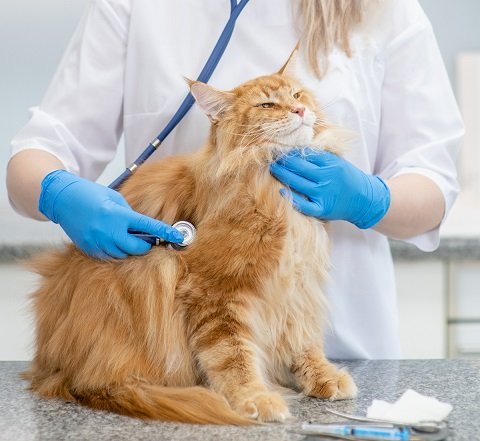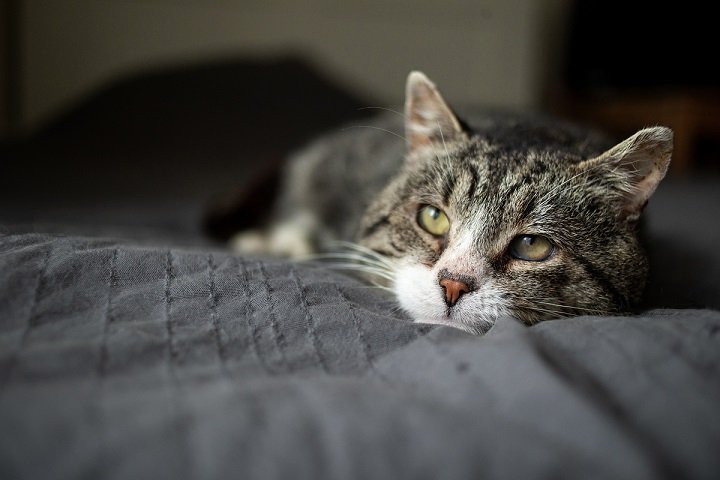All cats deserve the most excellent treatment. However, elderly cats have unique health concerns that need a higher level of care.
Cats’ health needs vary as they get older. They also need your assistance to adapt to these changes.
- When Do Cats Become Senior
A cat’s typical lifespan is around 12 and 15 years. However, advanced veterinary technology has allowed some felines to survive well into their 20s and beyond.
Keep in mind cats are often classified as seniors between 10 and 12. Cats aged 15 and up are then considered geriatric.
- How To Keep Your Senior Cat Healthy
A significant element of caring for your elderly cat is regularly watching their behavior. Consult a veterinarian if you feel that a behavioral change may indicate a more serious underlying problem. Moreover, planning your cat’s regular health examinations is also critical for monitoring your cat’s health.
Here are a few more tips to keep your cat healthy throughout the aging process.
- Monitor Your Cat’s Weight
If a senior cat continues to eat the same amount of calories but is less active, it may gain weight and become overweight. Moreover, it would be best to consider that an overweight cat is an unhealthy cat.
In addition, weight gain is problematic for a variety of reasons:
- It may raise your pet’s chance of developing a variety of illnesses, including diabetes
- It may exacerbate pre-existing arthritis and mobility concerns
- It may lower your pet’s quality of life

Lowering your cat’s calorie intake might help them lose weight. You can also reduce your caloric intake by giving canned food instead of fresh since it may have fewer calories. Additionally, you can boost movement by increasing the time to play.
Weight loss is another prevalent issue with older cats. It’s frequently one of the earliest indications of sickness. Additionally, it may happen even if your cat consumes the same amount of food or more than it used to because of illnesses like hyperthyroidism or diabetes. Hence, it’s crucial to have any weight loss assessed by a veterinarian.
If you notice that your cat isn’t eating as much as they used to, you may try switching them from dry to wet food. Alternatively, you may try warming the meal or substituting it with a more pungent taste, like fish.
- Keep Your Cat Hydrated
Ensuring proper hydration is critical for your cat. It aids in maintaining healthy organ activity and eliminating waste materials, among many other functions. However, many cats are rather picky about their water consumption.
So, you may have to make efforts to urge your senior cat to consume enough water, especially on sweltering days or after playing.
There are some things you can do, including:
- Water bowls should be placed around the house, especially if you have numerous pets or your property has multiple levels.
- Keep the water fresh. Cats often refuse to drink water that isn’t fresh. Water should be replaced twice a day preferably.
- Maintain clean water bowls. Water bowls should be cleaned adequately once daily to avoid the accumulation of slime and germs. In addition to keeping germs at bay, storing the bowls in a shaded area will slow their growth rate.
- Try installing a water fountain. Fountains may be a fantastic way to get cats to stay hydrated, especially those that love fresh or running water.
- Brush Your Cat’s Teeth Daily
Senior cats often suffer from dental problems. Regrettably, it might result in severe problems for your cat, such as discomfort and inflammation. So, it would help if you cleaned their teeth daily with a pet-safe brush and toothpaste to combat this.
If they don’t like having a brush in their mouth, gently massage a little strip of gauze on their teeth to clean them. It will assist in the removal of some germs and plaque.
During your cat’s health exams, request that your veterinarian examine their teeth. The vet can determine if your cat needs expert tartar removal. Additionally, they may deal with any teeth that may require extraction.

- Reduce Your Cat’s Stress
Senior cats are frequently more susceptible to stress. Stress may lead to various physical ailments, such as urinary and respiratory diseases and mental health issues in cats. So, it’s essential to keep your cat’s stress triggers to a minimum.
Ensure that your house has an adequate supply of litter boxes and that food and water and their beds are conveniently accessible. Your cat will never have to be concerned about meeting its necessities if you have them easily accessible.
Moreover, maintain a consistent schedule for mealtimes, playing, and sleep, and make any necessary adjustments to your cat’s surroundings gradually to avoid stress. In addition, keep a place for them to withdraw in times of stress, such as when you have other people around.
Bottom Line
If your cat keeps a healthy lifestyle as they age, their senior years may be pleasurable for both of you. It’s also important to note that you can make some simple adjustments to assist your elderly cat in remaining healthy and strong.
Maintaining regular veterinarian appointments, guaranteeing they get the proper diet and stay hydrated, and modifying their surroundings to make them comfortable all contribute to maximizing their wellbeing and even extending their life.

